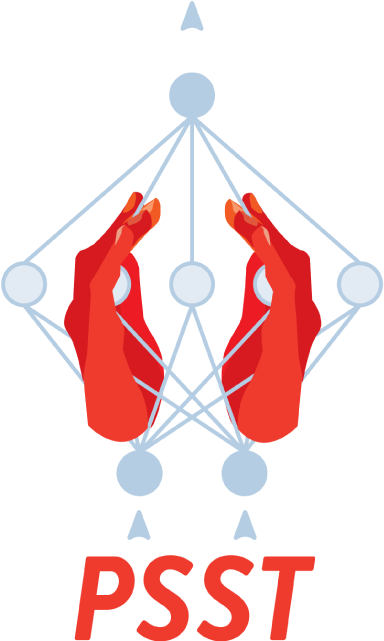Call for participation
The PSST: Post-Stroke Speech Transcription shared task will be held as part of the Fourth Workshop on Resources and Processing of Linguistic, Para-Linguistic, and Extra-Linguistic Data From People With Various Forms of Disabilities (RaPID-4), held at the 13th Language Resources and Evaluation Conference (LREC 2022) in Marseille, France.
Anomia, or word-finding difficulty, is one of the most prominent cognitive sequelae of stroke, affecting 2.5 - 4 million stroke survivors in the US alone. Its ensuing communication difficulties can have a major impact on the ability of a person to produce words and can affect their daily activities and health-related quality of life. Existing diagnostic and assessment tools are laborious to administer, and efforts to automate their administration often require detailed phonemic transcription by clinical staff, limiting their use in practice.
Historically, automated speech recognition (ASR) technologies have struggled to adequately handle disordered speech of the form produced by individuals with anomia. Furthermore, the most clinically-interesting features of speech — mispronunciations, neologisms, etc. — are precisely those that ASR finds the most challenging. Recent years, have seen major advances in the state of the art in ASR, with architectures such as wav2vec 2.0 achieving notable decreases in phoneme error rate; however, these results have been on speech from individuals without neurologic impairment.
The PSST Challenge will engage the ASR community in translating the latest computational techniques to the task of high-accuracy automated phoneme recognition in disordered speech, which has applications in many different clinical domains. Participants, after completing a data use agreement, will have access to a unique dataset for phonemic ASR, consisting of a set of audio recordings of English-speaking individuals with anomia undergoing assessments, as well as a new set of high-quality annotations including phonemic transcriptions.
The primary task will be high-accuracy automated phoneme recognition of disordered speech, with a second task focused on classifying audio samples into clinically-relevant categories. No clinical background is necessary, and we encourage participation by people with all levels of computational expertise.
Participants must register on the task website, at which point they will be given details about accessing the dataset as well as further instructions. The PSST Challenge is a collaboration between Oregon Health and Science University (OHSU) and Portland State University (PSU). This project is supported via a grant from the National Institute on Deafness and Other Communication Disorders NIH (R01-DC015999-04S1), the purpose of which is to promote the use of clinical datasets of aphasic speech by the mainstream machine learning community. The original dataset comes via the AphasiaBank project (R01-DC008524), and access to the data is governed by the TalkBank project’s protocols.
Please contact either Steven Bedrick (bedricks@ohsu.edu) or Gerasimos Fergadiotis (gf3@pdx.edu) with questions about any aspect of the shared task.
Travel Assistance
Thanks to the generous support of the National Institute on Deafness and Other Communication Disorders, we have a limited amount of travel assistance available for participating students and postdocs.
Submission Information
Papers will be submitted through the RaPID-4 workshop’s SoftConf portal, and must follow the LREC conference’s formatting guidelines. Papers should also feature wording in their title indicating that they are part of the PSST challenge.
Important links:
- Shared Task URL: https://psst.study
- Workshop URL: https://spraakbanken.gu.se/en/rapid-2022
Important Dates
- Call for Participation: Feb 22, 2022
- Training Data Release: Mar 1, 2022
- Blind Test Set Release: Mar 26, 2022
- RaPID-2022 Paper Submission Deadline: Apr 9, 2022
- Workshop Date: Jun 25, 2022
Contact
For questions about this shared task, please contact:
- Steven Bedrick (bedricks@ohsu.edu)
- Gerasimos Fergadiotis (gf3@pdx.edu)
Organizers
- Steven Bedrick, Oregon Health & Science University
- Gerasimos Fergadiotis, Portland State University
- Robert Gale, Oregon Health & Science University
- Mikala Fleegle, Portland State University
